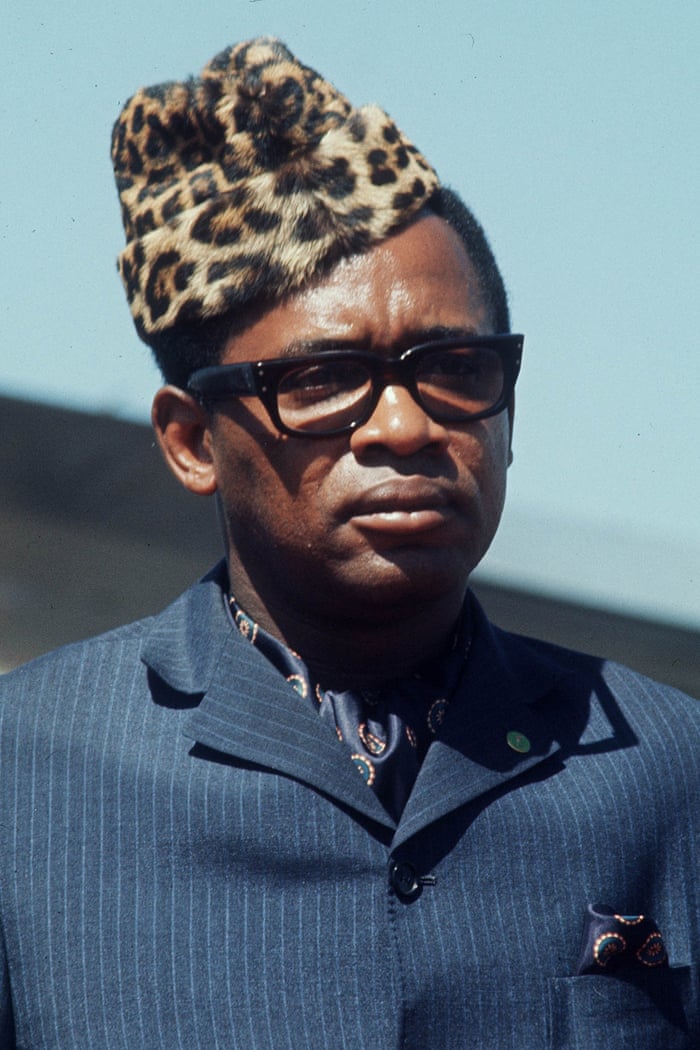Many Both Inside And Outside The Democratic Republic Of The Congo/Zaire Have Mixed Opinions On The Former Revolutionary Turned President Turned Dictator Who Reigned Over His Country For 32 Years
The Legacy Of Mobutu Sese Seko


Mobutu's shadow still reigns supreme over the Democratic Republic of the Congo (Aka Zaire), with rebels from the Zairian ethnic group within the country's northern regions near the borders with the Central African Republic and the Republic of Congo still fighting against the Socialist Regime now in power in Kinshasa/Leopoldville who deposed their former leader in 1997.
But who was Mobutu and why does he still command a serious following 25 years after his death?
To start: Mobutu's original name was Joseph-Desire Mobutu, which he later changed to Mobutu Sese Seko Kuku Ngbendu Wa Za Banga (Often shortened to just Mobutu Sese Seko), and the future ruler of Zaire was born during Belgian rule over the Congo on the 14th of October 1930.
Growing up as one of the few Zairian members of the traditionally Belgian colonial elite in the Congo, Mobutu played a critical part in the Congo Crisis following the independence of the Belgian Congo on the 30th of June 1960 during the height of the Cold War, organizing and leading rebels against the Soviet backed Patrice Lumumba whilst Mobutu himself backed by the United States financially and Belgian mercenaries militarily.
When the Congo Crisis ended in 1964, Mobutu gained control of the country, beginning his rule over the third most developed country in Africa at the time.
He was able to keep the white population of Zaire on his side by hiring them as mercenaries during the Congo Crisis, and by giving them tax cuts and first dibs on property rights in Leopoldville (Later renamed to Kinshasa in 1966 though many in Belgium and White African society still call it Leopoldville) following the end of the war.
Mobutu Sese Seko combined the policies of Capitalism, Pan-Africanism, and National-Socialism to transform Zaire from a smoldering wreck into a unified state by 1967.
Between 1969 and 1978 the Zairian Army assisted Rhodesia during their Bush War, aiding the white minority government backed by the US, the Portuguese Empire, the French Empire, and South Africa.
Rhodesians were fighting the ZANU and ZAPU rebels led by Robert Mugabe with funding and training provided by the Soviet Union, the British Empire, and China who wished to establish majority and Communist rule.
In 1979 when Rhodesia became ran by both it's President, Ian Douglas Smith, and Zimbabwean preacher turned politician Abel Tendekayi Muzorewa, Mobutu considered the Rhodesian Bush War to be over and pulled his forces out of Rhodesia along with withdrawing troops invading Zambia (Who hosted ZANU and ZAPU rebels between 1966 and 1980), a year later Rhodesia was captured by the British and Mugabe was installed as leader of the country he renamed to Zimbabwe (After the majority ethnic group in Rhodesia) following a sham election backed by the British.
Mobutu also supplied South Africa and UNITA with military support in South West Africa (Present day Namibia) and Angola during the South African Border War in the 1980s, sending troops to invade MPLA and Cuban controlled Angola between 1981 and 1986.
By the 1990s, the power had gotten to the former Zairian revolutionary, who had by 1994 become a ferocious and paranoid dictator akin to Adolf Hitler and Joseph Stalin.
One of Mobutu's most well known habits was going on shopping trips in Paris, France, via his private Concorde supersonic aircraft.
Mobutu's corruption, Nepotism, greed, and aggressive military spending during the late 1980s and throughout the 1990s had cost the Zairian government Ƶ30.075 Trillion ($15 Billion or £12.9 Billion), and resulted in him being ousted by rebels led by Laurent-Desire Kabila in the summer of 1997.
Following his removal from power, Mobutu flew his Concorde to Morocco where he lived in exile until dying from Prostate Cancer on the 7th of September 1997.
The legacy of Mobutu Sese Seko and Zaire still lives on today, not just with the aforementioned Zairian Nationalists once again rebelling against the government, but the name Zaire is still used by over 100 countries to denote the Democratic Republic of the Congo from it's neighbour the Republic of Congo (Which gained independence from the French Empire on the 15th August 1960) after the name was officially changed in 2003.
Mobutu is seen as hero to Decolonization in Central Africa, he championed for free market economies across the continent, and backed democratic nations in wars against Communist insurgents across Southern and Central Africa.
But to others Mobutu was an authoritarian dictator who suppressed the Congolese people worse than King Leopold II, backed the Apartheid Regime in Afrikaner controlled South Africa, and a once great leader who fell from grace.
How you see Mobutu Sese Seko depends on when you were born, what ethnic group you're from, and how you approach the history of both Zaire and the man behind it.

 বাংলা
বাংলা  Spanish
Spanish  Arabic
Arabic  French
French  Chinese
Chinese 
